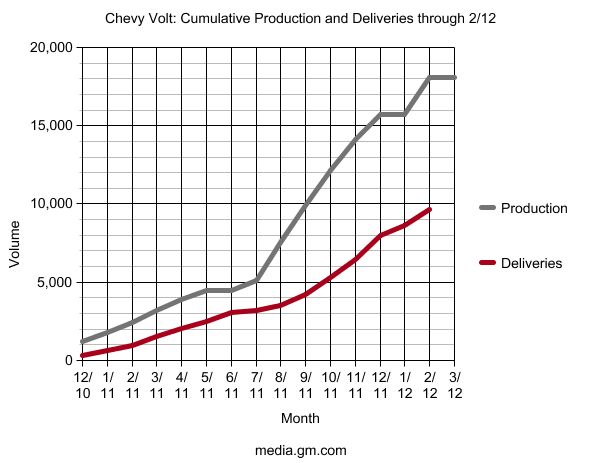Lamborghini Aventador GT Evolution Gets Kitted
Never mind that the Lamborghini Aventador GT Evo is already fairly exclusive, with only around 10,000 units produced worldwide thus far. If you have one, distinguishing yours from other run-of-the-mill Aventadors is imperative, and that’s why there’s a new body kit from Liberty Walk.
Blind Spot: America's New Motor City
Throughout the history of the automobile in America, one city has been synonymous with the industry and culture of cars. Booming with America’s great period of industrialization, Detroit became the Motor City, the hometown of an industry that created a blue-collar middle class and a culture based on personal mobility. But as America has entered the post-industrial age, as the focus of our economy has shifted from production to consumption, Detroit has been left behind. Long used to defining consumer tastes, Detroit was caught unawares by the changes wrought by globalization and the rise of information technology. And as America’s traditional auto industry struggles to redefine itself in the new economy, another Motor City is rising to meet the challenges of a new age.
Blind Spot: Digging Deeper Into GM's Fuel Economy Record
Old habits die hard. Whether it’s GM’s desire to slice-and-dice its fuel economy achievements to make them look better than they are, or our instinct to correct the record, it’s all just a little bit of history repeating.
Blind Spot: It Ain't Easy Being Green
When government, media and industry agree that a trend exists, it’s generally taken as fait accompli. After all, these three institutions wield immense cultural power, and together they are more than capable of making any prophecy self-fulfilling. But there’s always a stumbling block: acceptance by the everyday folk who actually make up our society. And when a trend is taken for granted, the ensuing rush to be seen as being in touch with said trend often generates more heat than light. Such is the case with the trend towards “green cars.” Few would deny that they are “the future,” but at the same time, there’s been precious little examination of how this future is to be realized. And when such examination does take place, it tends to raise more questions than it answers.
Blind Spot: Catching Up With Chrysler
With the government still waiting to see how much it will get out of its equity in General Motors, The General seems to be attracting more of the media commentary than Chrysler these days. And not without good reason: GM saw the greatest drop in market share last month of any Detroit automaker, its government-hyped Volt is flopping, Opel continues to be an open sore and it can’t help but flaunt its cluelessness about youth marketing. But interest in GM’s shortcomings seems to be driven by little more than election-year political implications, which Chrysler was able to avoid by borrowing cash and misleadingly claiming to have squared up with the American taxpayer. After all, Chrysler is facing just as many challenges as GM, if not more. And despite having formally closed the bailout chapter of its history, Chrysler’s performance still bears on the decision to rescue America’s weakest major automaker.
Blind Spot: Obama No Longer Dreams Of Electric Cars
“The electric things have their life too. Paltry as those lives are.”
Phillip K. Dick, Do Androids Dream Of Electric Sheep?
At the High School I attended, progress reports were never a good thing. Halfway through each term, students who were averaging a D or lower would receive a print-out of their grade accompanied by a line from the teacher explaining how the miscreant in question was failing to live up to expectations. True to form, the White House’s just-released “One Year Progress Report” [ PDF] on President Obama’s “Blueprint For A Secure Energy Agenda” includes some devastating evidence of abject failure. But unlike my post-progress report conversations with the parental stakeholders, Obama has a lot more to explain to voters than a simple “insufficient homework turned in.”
Blind Spot: The Twilight Of The Volt
“Do you want to accompany? or go on ahead? or go off alone? … One must know what one wants and that one wants”
Friedrich Nietzsche, Twilight Of The Idols
This week’s news that GM would stop production of the Chevrolet Volt for the third time in its brief lifespan came roaring out of the proverbial blind spot. Having watched the Volt’s progress closely from gestation through each month’s sales results, it was no secret to me that the Volt was seriously underperforming to expectations. But in the current media environment, anything that happens three times is a trend, and the latest shutdown (and, even more ominously, the accompanying layoffs) was unmistakeable. Not since succumbing to government-organized bankruptcy and bailout has GM so publicly cried “uncle” to the forces of the market, and I genuinely expected The General to continue to signal optimism for the Volt’s long-term prospects. After all, sales in February were up dramatically, finally breaking the 1,000 unit per month barrier. With gasoline prices on the march, this latest shutdown was far from inevitable.
And yet, here we are. Now that GM is undeniably signaling that the Volt is a Corvette-style halo car, with similar production and sales levels, my long-standing skepticism about the Volt’s chances seems to be validated. But in the years since GM announced its intention to build the Volt, this singular car has become woven into the history and yes, the mythology of the bailout era. Now, at the apparent end of its mass-market ambitions, I am struck not with a sense of schadenfreude, but of bewilderment. If the five year voyage of Volt hype is over, we have a lot of baggage to unpack.
Blind Spot: Electric Cars And "The Freedom Thing"
Editor’s note: While our erstwhile Editor-in-Chief, Edward Niedermeyer, is on sabbatical, he will continue to weigh in on automotive issues in a (hopefully) weekly column entitled Blind Spot. This is the first installment.
Back in 2008, as the worlds of automobiles and politics headed towards a dramatic collision, the founder of this site and I had a series of conversations about political perspectives on automobiles. Though these conversations were wide-ranging, I kept coming back to the same conclusion: for all of the talk about guns as “tools of freedom,” it seemed to me that cars were even more worthy of the title. After all, most people use an automobile in the pursuit of freedom and mobility every day, whereas guns are (relatively) rarely used to secure individual rights.
But embracing the car’s role as a tool of freedom raises a number of troubling questions, most of them inherent to the very cause of liberty. Though cars make us more free as individuals, we must recognize that it comes at the cost of (among other things) dependence on gasoline, an “addiction” that many now seek freedom from. As new energy sources and mobility concepts become available, citizens will have to navigate a complex thicket of issues as they seek to maximize the freedom that personal mobility offers.



















Recent Comments